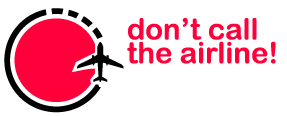Again, on CBC – and Aeroplan takes issue with me.
Several months ago, my award booking service, Awarding Canada, was covered on CBC’s The National. Today, a news article on CBC, Aeroplan says ‘blackouts are gone’ — but what about those fuel surcharges?, quotes Aeroplan as taking issue with me. The article notes:
“Aeroplan doesn’t charge fuel surcharges on all their carriers.” said Campbell. “[Taiwan airline] Eva, United, Swiss Airlines, they don’t charge fuel surcharges.”
An Aeroplan spokesperson wrote in an email: “[We] don’t charge fuel surcharges, but instead apply them where applicable on behalf of our airline partners.”
They’re right. Fuel surcharges (carrier surcharges) are actually billed by Air Canada. When you make a booking on Aeroplan, the taxes and fees show up on your credit card statement as being charged from Air Canada, whereas change fees are charged by Aeroplan.
However, to the end consumer, does it really matter? Yes, Aeroplan and Air Canada are separate companies, a fairly unique organization for frequent flyer programs. In the eyes of Canadians, do most care or know? I doubt it. To most Canadians, Aeroplan is Air Canada, even though it is not. And even if most people understood the difference, Aeroplan could arrange with Air Canada (or vice-versa) to reduce or remove fuel surcharges. United’s frequent flyer program does it.
If it was simply an issue of the carrier demanding the collection of fuel surcharges (like British Airways does to partner programs), then why does Air Canada, Lufthansa, etc., not demand the collection of fuel surcharges for United redemptions, where substantially more redemptions presumably originate? In fact, I think it looks rather worse that Air Canada doesn’t demand the collection of fuel surcharges on partner redemptions, but gouges their own members.
Their excuse is terrible. But they’re right. Technically, Air Canada collects the surcharges, and not Aeroplan. But Aeroplan should engage their bargaining power to get rid of, or at least limit, these surcharges. If United can do it, so could Aeroplan. And if the issue is coming from Air Canada, and Aeroplan is more than willing to get rid of fuel surcharges, shame on them.

So why doesn’t Aeroplan or Air Canada collect the fuel surcharge on all carrier award tickets and not just a select few? You’re implying that these airlines (that AC is collecting the fees for) are not actually getting this money? Or could it just be that UA/MileagePus has enough clout to demand those carriers not levy the fuel surcharge?
Yes, when an Aeroplan ticket is issued, it is done so on AC ticket stock (014 IIRC) and AC is acting as Aeroplan’s travel agency authorized to issue tickets on all STAR carriers.
It would be nice to get AC, LH and those others who request the fuel surcharge on award tickets to explain why they require it of Aeroplan redeemers but not of MileagePlus redeemers. After all, LH charges its Miles&More members those surcharges on award tickets. Or has UA/MP been absorbing these surcharges within the pricing (in miles) of those awards? Since the US$ is stronger than the C$, that 25K award from MP is worth more than the same 25K award with Aeroplan, so could be covering the expense of the fuel surcharge?
While Areoplan & Air Canada are indeed seperate companies, Air Canada has considerable sway in what Aeroplan does. The hundreds of millions in back door loans from Aeroplan to AC seem to confirm my thinking. In addition , if Air Canada left Star Alliance – Aeroplan would no longer be able to sell the Aeroplan rewards from the other carriers. Thinking Aeroplan is a wholly separate company might be a mistake.
Aeroplan collects “carrier surcharges” when redeeming on some (not all) airlines, and then passes on collected money to Air Canada. Then Air Canada pockets the money as their profit. Air Canada does not pay those surcharges to operating carriers.